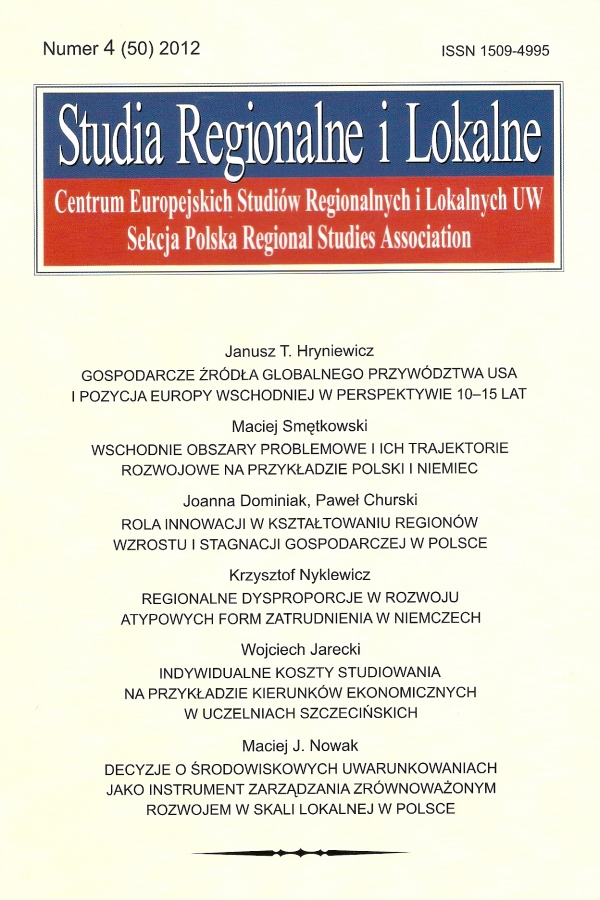Published in
4(50)/2012

- Janusz T. HryniewiczEconomic sources of the United States’ role as a global leader and the position of Eastern Europe over the next 10?15 years[more]
- Maciej SmętkowskiThe Eastern problem areas and their growth trajectories – the example of Poland and Germany[more]
- Joanna Dominiak, Paweł ChurskiThe role of innovation in the formation of regions of development and those of economic stagnation in Poland[more]
- Krzysztof NyklewiczRegional disproportion in the development of atypical forms of employment in Germany[more]
- Wojciech JareckiIndividual costs of higher education on the example of economics departments at the universities in Szczecin[more]
- Maciej J. NowakDecisions regarding environmental conditions as a management tool for a balanced development at the local scale in Poland[more]
- Ewa ModzelewskaSprawozdanie z konferencji naukowej „Płaszczyzny zarządzania w samorządzie terytorialnym”[more]
- Marek KozakCzy aby na pewno polityka spójności jest polityką regionalną? Sławomir Pastuszka, Polityka regionalna Unii Europejskiej – cele narzędzia, efekty (recenzja)[more]
- Maciej J. NowakZbigniew Makieła, Andrzej Szromnik (red.), Miasto innowacyjne: wiedza – przedsiębiorczość – marketing (recenzja)[more]
- Mariusz ChudakEwa Łaźniewska, Marian Gorynia (red.), Konkurencyjność regionalna. Koncepcje – strategie – przykłady (recenzja)[more]


